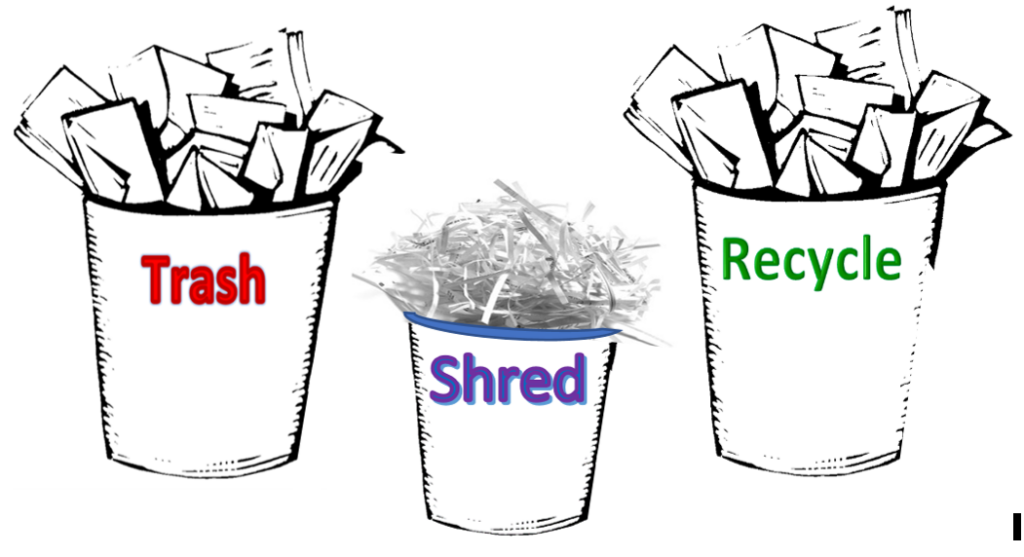We all have too much paper in our lives. Diane, who is the business manager at RieOrganize! tells the following story:
“I have always had a fairly high tolerance for paper clutter before I reach my limit and, even then, it’s often not a conscious decision to sort through everything – I just start small and then usually keep going. The other day was one of those days. Although I missed being outside on a beautiful day, I opened the windows and just applied myself. The reward? Being able to sit back, that night, and look around at so many cleared off spaces with a sense of calm. AND I reaped the side benefit of finding two things for which I had been searching!”
Mail and other paper is a huge source of clutter for everyone. Every day your mailbox is full of paper, and 90% of it is probably useless to you.
Review the mail you get and look for opportunities to switch to paperless billing or automatic payments. You’ll eliminate the possibility of losing the electric bill in a pile of mail, plus you’ll have one less piece of mail coming to your house in the first place.
It’s important to have a system for processing mail. You know it’s coming every day, so figure out a system where you can sort it right away. Glance through the mail on your way back from the mailbox. Then when you’re in the house, toss junk mail in the recycle bin (or shredder if it includes personal information) and take immediate action on anything else.
Want to stop getting some of that junk mail altogether? Check out this resource from the Federal Trade Commission on ways to opt out of prescreened credit card offers, telemarketing calls, and other direct mail marketing.
WHAT TO KEEP AND WHAT TO TOSS?

Keep:
You should keep your tax records safe and secure, whether they are stored on paper or electronically. The same is true for any financial or health records you store, especially any document bearing Social Security numbers.
Keep:
Keep copies of your tax returns and supporting documents for at least seven years. Remember to keep records about property you own for seven years after the year in which you no longer own the property. This time frame allows you to file a claim for adjustment in cases of bad debt deduction or a loss from worthless securities. Always check with your tax advisor for further clarification and updates in tax regulations as they change every year.
Toss:
Dispose of old tax records properly. Never toss paper tax returns and supporting documents into the trash. Because of the sensitive nature of this data, the loss or theft of these documents could lead to identity theft and have an economic impact. These documents contain the Social Security numbers of you, your spouse and dependents, old W-2 income and bank account information. Therefore, your federal and state tax records, as well as any financial or health records should be shredded before disposal.
Toss:
Lots of mail looks like it’s official and even says “keep this for your records”, but sometimes you really don’t need to if the same information can be found online. If you bank online, you don’t need to keep the monthly paper statements since you can access them through your online bank account. You should reconcile your account before shredding the statements, but you don’t need to file and store that paper indefinitely. The same can be done for paper bills, but if you took our tip above, you’ve enrolled in autopay and paperless billing and don’t have to worry about paper bills anymore.
Not all of us can be as diligent and apply ourselves as easily as Diane did, so if you need help sorting through your clutter, contact an organizer. For a list of NAPO organizers, click here




